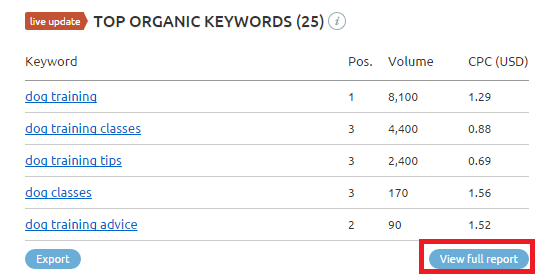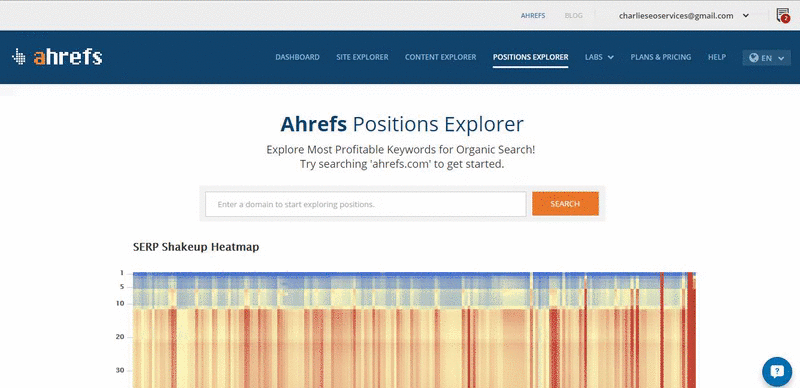I’ve released a LOT of content today… So check out my latest premium eBook and my Silo Structure video as well as this post.
I recently got featured in a round-up on keyword research, and had quite a few people message/email/tweet me and all the other various ways we now have to communicate online to expand my technique in that round-up into a full blown blog post. So, here we are.
Table of Contents
The Tools You’ll Need
Now, my way of doing keyword research is pretty tool-intensive, as I have the tools available and at my disposal then of course I am going to use them. I do however apologies to anyone who doesn’t have access to these tools, as I know they can be expensive… From first hand experience of a couple thousand bucks coming out my bank account every year.
Just 3 tools, now let’s get into how I do it.
Step 1 – Finding Initial Keyword Data Sets
Right, for my tactic I always start off with a base keyword or niche to start with, in this example I’ll be going with the classic example people like to use in SEO tutorials… Dog Training –

I’ll also make a note of every auto-suggest keyword as well, which in this case are the following:
- dog training tips
- dog training courses
- dog training advice
- dog training videos
This now gives me 5 Page #1 SERPs to start looking at.
Step 2 – Identifying Competing Pages
So I pull off every RELEVANT (to my keyword) page on each SERP, in the page 1 “dog training” SERP (when searched in Google UK) example, these are the most relevant pages I could find, in order of rank:
- http://www.thekennelclub.org.uk/training/get-started-in-dog-training/
- https://www.cesarsway.com/dog-training/obedience/5-essential-commands-you-can-teach-your-dog
- http://www.apdt.co.uk/dog-owners/puppy-dog-training-tips
- https://en.wikipedia.org/wiki/Dog_training
- https://www.dogstrust.org.uk/help-advice/factsheets-downloads/basicdogtrainingfactsheetnov13.pdf
- https://www.dogstrust.org.uk/help-advice/training-videos/
- http://www.barkbusters.co.uk/dog-training-tips/1
I also do this for every other keyword I found in the auto-suggest, as these will likely all be very relevant pages.
I’m just going to use a few from the 7 above to show you for example purposes.
Step 3 – Running Them Through {Ahrefs|SEMRush}
I decided to use these 3 pages:
- http://www.thekennelclub.org.uk/training/get-started-in-dog-training/
- https://www.dogstrust.org.uk/help-advice/training-videos/
- http://www.barkbusters.co.uk/dog-training-tips/1
They’re all very niche relevant to the keyword I first put in.
[well]Note: You should run every page through for the best keyword results, but I’ll just be using these 3 examples.
Also make sure any pages you are running through are solely niche relevant, don’t go for broad pages e.g a page about dogs wouldn’t suffice to “dog training”.[/well]
SEMRush
I like SEMRush in comparison to Ahrefs tool purely because they A) Have more countries, if you’re going after alternative Google sites and B) Generally have a larger keyword base, though that is niche dependent.
[well]Note: SEMRush doesn’t allow sub-domain lookups, so use Ahrefs position explorer via the tutorial below if you have sub-domain links.[/well]
You’re first going to want to run the link through SEMRush –

Then head down to the “Organic Keywords” section, and click “View Full Report” –

If you’re in the free version you’ll see a few results, but you’ll need the premium version to see them all, just click the “Export” button to get the full list of keywords.
Ahrefs Position Explorer
A fairly new tool developed by Ahrefs to compete with SEMRush, and is doing a pretty good job.
You’re going to input your link into Ahrefs PE, scroll down to the “Top 5 Organic Keywords” and click “Learn More” –

I ran all 3 URLs through both SEMRush and Ahrefs PE and managed to pull off over 300 unique keywords, ranging from 10 MS to over 10,000.
Note: Make sure you make a note for future reference of EVERY page you find ranking, as this list can be used to reverse engineer backlinks when doing SEO for the page you’re going to build for these keywords.
It’s also a good idea to have notes and do competitor analysis with these pages anyway, noting down things like:
- Link Count
- Word Count
- Metrics
- Page Age
- Archive Changes
All these things will help with your future page build and OffPage campaign.
Step 4 – Excel & Data Sorting
I’ll first combine every competitor keyword list I pulled into one super spreadsheet, removing any duplicates in the process – Leaving you with just unique keywords.
[well]Note: You can then get a VA to sort the data into further individual spreadsheets (if you wish) for things like buyer intent keywords, low MS, competitive and so on…[/well]
I’ll then run that super spreadsheet, or each individual one through Google Keyword Planner to pull off the true MS data for my country (or internationally) and export that spreadsheet.
I’ll strip the surrounding data in the spreadsheet that I don’t need:
- Ad group
- Currency
- Impr. share
- Organic impr. share
- Organic avg. position
- In account?
- In plan?
- Extracted From
I then sort these keywords by a number of ways, depending on the type of page I want to build:
- CPC
- Monthly Search
And so on…
I then have a VA manually analyse every keyword (by searching it) and making a note of the top 3 results and their corresponding stats (TF, PA, Link Count, Social Signals etc…) so I can have a quick overview of what kind of competition each keyword I’m going after has.
I can then make a very strong assumption of what kind of tactic, links, page size, domain authority etc.. are needed when going after each keyword.
Thanks For Reading
I hope you enjoyed this blog post, and it gave you a solid technique for finding profitable keywords.
Don’t forget to join my newsletter and drop a comment with your own variations of this technique or even your own keyword research technique below.








